Andreas Rasche
Copenhagen Business School



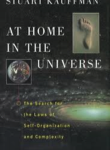
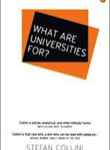
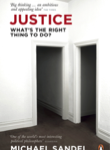
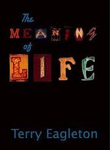
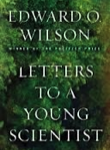
'Image and Logic' - Peter Galison (University of Chicago Press)
A must-read if you are interested in the history of science and have some doubts about the objectivity of 'given' facts. I think the concept of 'trading zones' between scientists is especially valuable to foster further thinking on how collaboration between scientists with different disciplinary backgrounds could possibly look like. Since Galison's background is physics, most examples refer to the history of physics. Nevertheless, I think you do not need to have studied physics in order to understand his arguments.
A must-read if you are interested in the history of science and have some doubts about the objectivity of 'given' facts. I think the concept of 'trading zones' between scientists is especially valuable to foster further thinking on how collaboration between scientists with different disciplinary backgrounds could possibly look like. Since Galison's background is physics, most examples refer to the history of physics. Nevertheless, I think you do not need to have studied physics in order to understand his arguments.
'Post-Democracy' - Colin Crouch (Polity)
A critical look at what democracy by a former colleague of mine, Colin Crouch. He argues that democracy has become detached from the lives of ordinary people, as politicians increasingly represent a closed system that is more concerned with reproducing itself than accounting for the interest of the masses. Crouch skilfully shows how politics is slowly, but not necessarily in an unobtrusive way, becoming the business of a small privileged elite. Driven by major deregulation and privatisation, shareholder capitalism, and excessive lobbying (which itself remains a largely ungoverned space). For people interested in responsible business this book has much to offer, not least because it puts a new angle on an old debate: the merits of a stakeholder economy.
A critical look at what democracy by a former colleague of mine, Colin Crouch. He argues that democracy has become detached from the lives of ordinary people, as politicians increasingly represent a closed system that is more concerned with reproducing itself than accounting for the interest of the masses. Crouch skilfully shows how politics is slowly, but not necessarily in an unobtrusive way, becoming the business of a small privileged elite. Driven by major deregulation and privatisation, shareholder capitalism, and excessive lobbying (which itself remains a largely ungoverned space). For people interested in responsible business this book has much to offer, not least because it puts a new angle on an old debate: the merits of a stakeholder economy.
'On Bullshit' - Harry Frankfurt (Princeton University Press)
An excellent discussion of a very widespread phenomenon. Contrary to liars, bullshitters convey a certain impression of themselves without being concerned about whether anything at all is true. In other words: the bullshitter disregards truth completely and is rather interested in impressing the audience. There are many bullshitters around, the best known probably politicians. Yet, I think Frankfurt's thinking also applies to 'management fashions' which, strictly speaking, represent bullshit. The book was originally published in a journal in 1986 (but back then did not attract much attention).
An excellent discussion of a very widespread phenomenon. Contrary to liars, bullshitters convey a certain impression of themselves without being concerned about whether anything at all is true. In other words: the bullshitter disregards truth completely and is rather interested in impressing the audience. There are many bullshitters around, the best known probably politicians. Yet, I think Frankfurt's thinking also applies to 'management fashions' which, strictly speaking, represent bullshit. The book was originally published in a journal in 1986 (but back then did not attract much attention).
'At Home in the Universe' - Stuart Kauffman (Oxford University Press)
A non-complex journey into complexity theory. Stuart Kauffman looks at what creates order out of chaos, and comes up with a brilliantly written and entertaining perspective on self-organisation. Although his discussion centres much around biological phenomena (mostly cell systems), he shows that the underlying principles of self-organisation are also applicable to other types of systems. The common thread running through the book is the claim that complexity results from self-organisation (and hence cannot be exclusively attributed to Darwinian selection). The resulting conception of 'order on the edge of chaos' remains a neglected perspective in the social sciences.
A non-complex journey into complexity theory. Stuart Kauffman looks at what creates order out of chaos, and comes up with a brilliantly written and entertaining perspective on self-organisation. Although his discussion centres much around biological phenomena (mostly cell systems), he shows that the underlying principles of self-organisation are also applicable to other types of systems. The common thread running through the book is the claim that complexity results from self-organisation (and hence cannot be exclusively attributed to Darwinian selection). The resulting conception of 'order on the edge of chaos' remains a neglected perspective in the social sciences.
'What Are Universities for?' - Stefan Collini (Penguin)
Collini has written an inspiring book on the role of universities in modern society. One vital point he is making is that we increasingly justify the existence of universities around economic dimensions: universities must demonstrate their contribution to economic growth (much like corporations do). Collini argues that such an instrumental view neglects the inherent worth of intellectual inquiry. Governments often take a shortsighted view when demanding that their 'investments' in higher education need to be measurable in economic terms. Collini skilfully integrates recent trends in higher education - such as the rapid rise in students numbers as well as the 'audit culture' surrounding much academic research - into his analysis.
Collini has written an inspiring book on the role of universities in modern society. One vital point he is making is that we increasingly justify the existence of universities around economic dimensions: universities must demonstrate their contribution to economic growth (much like corporations do). Collini argues that such an instrumental view neglects the inherent worth of intellectual inquiry. Governments often take a shortsighted view when demanding that their 'investments' in higher education need to be measurable in economic terms. Collini skilfully integrates recent trends in higher education - such as the rapid rise in students numbers as well as the 'audit culture' surrounding much academic research - into his analysis.
'Justice - What's the Right Thing to Do?' - Michael J. Sandel (Penguin)
A pretty straightforward question which often gets lost in the hype around the 'business case' for CSR, sustainability or 'whatever'. What makes this book interesting is not necessarily Sandel introducing different views on justice (ranging from utilitarian thinking to libertarianism and deontological ethics). Rather, it is Sandel's ability to connect brilliant examples to these theories: Can killing be morally justified? Can lying be justified in some circumstances? Sandel discusses these questions in an exciting way exposing how moral dilemmas can be evaluated from different perspectives.
A pretty straightforward question which often gets lost in the hype around the 'business case' for CSR, sustainability or 'whatever'. What makes this book interesting is not necessarily Sandel introducing different views on justice (ranging from utilitarian thinking to libertarianism and deontological ethics). Rather, it is Sandel's ability to connect brilliant examples to these theories: Can killing be morally justified? Can lying be justified in some circumstances? Sandel discusses these questions in an exciting way exposing how moral dilemmas can be evaluated from different perspectives.
'The Meaning of Life' - Terry Eagleton (Oxford University Press)
It first struck me as a bit odd to approach this age-old question in a little book (of around 150 small pages). Not much surprisingly, Eagleton does not attempt to give a definite answer to the question of 'what's it all about'. Rather, the book is a nice overview of different philosophical perspectives (incl. Derrida, Wittgenstein, Marx) who Eagleton seems to sympathise with. The book is fun, if you don't take the initial question too seriously. In the end, Eagleton ends up in a jazz bar. He argues there are two strong candidates to grasp the meaning of life: to live it in love and happiness (much like an improvising jazz ensemble).
It first struck me as a bit odd to approach this age-old question in a little book (of around 150 small pages). Not much surprisingly, Eagleton does not attempt to give a definite answer to the question of 'what's it all about'. Rather, the book is a nice overview of different philosophical perspectives (incl. Derrida, Wittgenstein, Marx) who Eagleton seems to sympathise with. The book is fun, if you don't take the initial question too seriously. In the end, Eagleton ends up in a jazz bar. He argues there are two strong candidates to grasp the meaning of life: to live it in love and happiness (much like an improvising jazz ensemble).
'Letters' to a Young Scientist' - Edward O. Wilson (Liveright)
Wilson's book is, of course, a play on Rilke's 'Letter's to a Young Poet'. In his twenty-one letters Wilson, a Harvard biologist, touches upon a variety of essential questions: Why to become a scientists in the first place? How to balance expertise in one specific field with cross-disciplinary curiosity? In particular, he urges younger scientists to not become entrapped in the narrow discourses of a field, but to look into other, often distant, fields for inspiration and cross-fertilisation. Reflecting on his own successes and failures, Wilson argues that scientific discovery is not a matter of possessing highly developed mathematical skills, but rather a passion for the problem you are thinking about.
Wilson's book is, of course, a play on Rilke's 'Letter's to a Young Poet'. In his twenty-one letters Wilson, a Harvard biologist, touches upon a variety of essential questions: Why to become a scientists in the first place? How to balance expertise in one specific field with cross-disciplinary curiosity? In particular, he urges younger scientists to not become entrapped in the narrow discourses of a field, but to look into other, often distant, fields for inspiration and cross-fertilisation. Reflecting on his own successes and failures, Wilson argues that scientific discovery is not a matter of possessing highly developed mathematical skills, but rather a passion for the problem you are thinking about.





